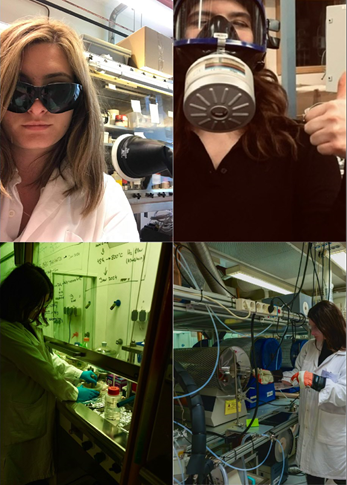Elena Naumovska is a PhD student from Chalmers University of Technology.
The search for renewable energy solutions has increased the interest in proton conducting perovskite-type oxides, particularly for their application in intermediate temperature fuel cells. Elena adopts a multi-technique approach to investigate these materials. Her research aims to identify key questions regarding the local structure and proton dynamics in acceptor doped barium zirconates and barium indates, which can contribute to the development which leads to industrialization of high performing intermediate temperature fuel cells. Elena's project employs a combination of quasielastic neutron scattering and optical spectroscopy among other analytical techniques.
Quasielastic neutron scattering is especially useful for studying the proton motions in these materials, and particularly the proton transfers (or jumps) between neighboring oxygens and/or reorientational motion of the hydroxide group around the oxygen. Understanding which is the preferred motion, and which is rate-limiting for long range diffusion, as well as its relationship with the type of dopant atom and its concentration, is crucial for further advancement in the field of solid oxide proton conductors.
One of the advantages of doing research which involves neutron scattering, according to Elena, is the collaboration with experienced researchers and instrument scientists. This collaboration not only facilitates the effective navigation of complex data analysis but also offers innovative perspectives. Furthermore, it helps in expanding professional networks, which is great for career development.

Elena's project, as with any scientific project, encounters various challenges. Key issues include securing beamtime, the logistics of travel to research facilities, and interpreting complex data. Moreover, unexpected results can complicate the analysis process. However, staying optimistic and developing out-of-the-box thinking is key to overcoming these challenges.
Doing research which involves neutron scattering techniques is a pathway to contributions towards important advancements in science, whilst developing a skill set that is applicable across various fields. Whether it's unlocking the mysteries of a new material or elucidating diffusion processes, the impact of the research based on neutron scattering offers new insights that are essential for solving the grand challenges of our society.
As per Elena, students will definitely benefit from events where they present simplified popular science presentations of their research to the public, in order to raise awareness and interest in neutron scattering.
